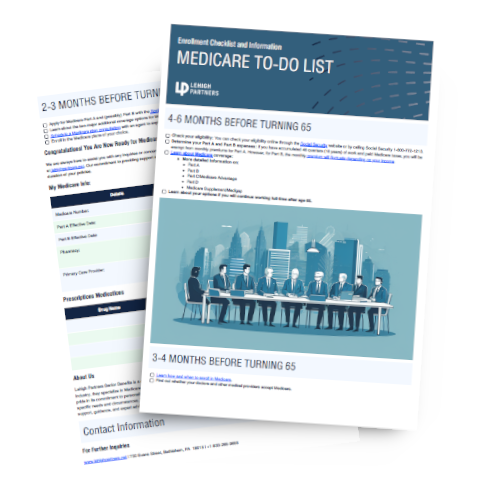Moving to another state can be a stressful event, especially if you're a Medicare beneficiary. You may be concerned about losing coverage or finding a new healthcare provider that accepts your insurance. However, there are steps you can take to ensure a smooth transition and maintain your Medicare benefits.
Step 1: Update Your Address
The first thing you need to do when you move to a new state is to update your address with the Social Security Administration (SSA). This will ensure that your Medicare information is updated and all correspondence will be sent to your new address. You can update your address by visiting the SSA website or calling their toll-free number at 1-800-772-1213
If you worked for a railroad, you can update your information through the Railroad Retirement Board (RRB). Call 1-877-772-5772
Step 2: Check Your Medicare Plan
It's important to check if your current Medicare plan covers services in your new state. Medicare Advantage and Prescription Drug plans may have different coverage and network providers in each state. If you’re enrolled in a Medicare Advantage plan or stand-alone Medicare prescription drug plan and are moving outside your Medicare plan’s service area (either to a new address in your state or a new state altogether), you will likely need to enroll into a plan that is within your new service area.
Your move may create a Special Election Period to make changes to your coverage if:
- You're moving out of your Medicare plan's service area.
- You're moving to a new location that is still in your Medicare plans service area, but you also have new plan options in your new area.
In both cases, you can use your Special Election Period to switch to a different Medicare Prescription Drug Plan or Medicare Advantage plan. You can contact your Medicare plan to disenroll. If you notify your Medicare plan before you move, your Special Election Period starts the month before you move and continues for two more months after you move. If you let your Medicare plan know after you’ve moved, your Special Election Period starts the month you tell your plan and continues for another two months.
Please note that if you have Medicare Part C and there aren’t any Medicare Advantage plans available in the new service area that you’re moving to (or you don’t want to enroll in one), you can also choose to return to Original Medicare. You can then sign up for a stand-alone Medicare Part D prescription drug plan, and you might be able to buy a Medicare Supplement insurance plan.
Find a plan
To get started, all we'll need is your zip code. We will show you a selection of Medicare plans in your area.
Step 3: Find a New Healthcare Provider
Finding a new healthcare provider can be challenging, especially if you're moving to a rural area. However, you can use Medicare's provider directory to search for healthcare professionals that accept Medicare. You can also contact your current healthcare provider for a referral or ask for recommendations from friends and family in your new location.
Step 4: Consider Medigap Coverage
If you have Original Medicare (Part A and Part B) and are moving to a new state, you may want to consider purchasing a Medigap policy. Medigap plans are supplemental insurance policies that cover certain out-of-pocket costs that Original Medicare does not cover. Depending on where you're moving, you may find that certain Medigap plans are more cost-effective than others.
Step 5: Enrollment Timeframes
Keep in mind that you have a limited timeframe to make changes to your Medicare coverage. If you're moving to a new state, you have a Special Enrollment Period (SEP) that allows you to make changes to your Medicare coverage outside of the traditional enrollment periods. The SEP allows you a three-month window to make any necessary changes without penalty.
In summary, moving to another state doesn't mean you have to lose your Medicare coverage. By taking the necessary steps to update your address, research coverage options, and find a new healthcare provider, you can continue to receive quality healthcare no matter where you choose to call home.
Do you have any questions about your Medicare coverage if you’re moving to a different state? Feel free to use the Plan Finder to browse Medicare plan options in your new location. If you prefer to get personalized assistance, call toll free to speak with a licensed insurance agent. We can help you find Medicare plan options that address your Medicare needs.

